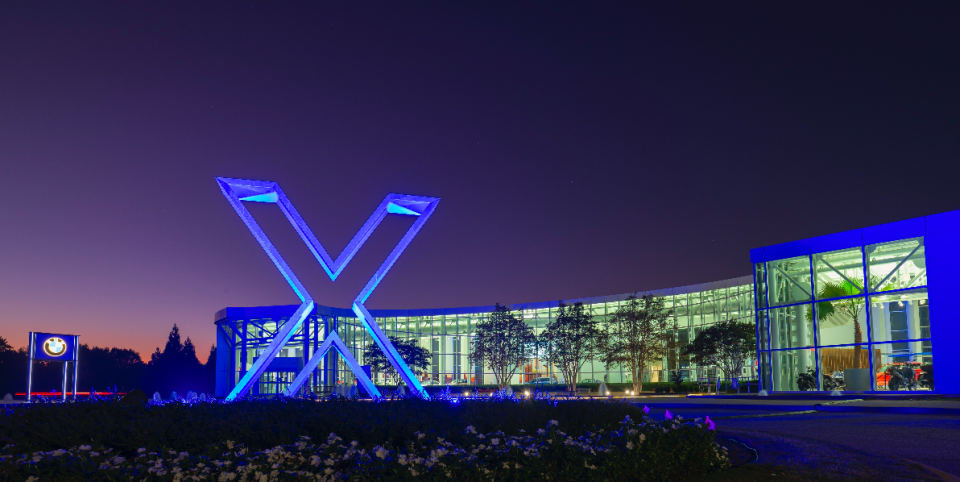BMW’s $1.7 Billion Bid to Become an Electric Vehicle Powerhouse

A BMW expansion plan in South Carolina includes $1 billion to prepare for electric vehicle production and $700 million for a battery assembly facility.
By 2030, BMW plans to build at least six fully electric vehicle models in the United States.
New round lithium-ion battery cells will supply BMW’s electric vehicles.
BMW plans to build at least six fully electric vehicle models in the United States by 2030. To get there, the German-based company announced a $1.7 billion investment in its South Carolina facilities. Plans include $1 billion to prepare Plant Spartanburg in Greer to produce battery-powered electric vehicles, and $700 million to construct a new high-voltage battery assembly facility in nearby Woodruff.
🚘 We’ll help you navigate the latest car news. Let’s ride together—join Pop Mech Pro.
“For decades, Plant Spartanburg has been a cornerstone of the global success of the BMW Group,” Oliver Zipse, BMW group chairman of the board of management, says in a statement. “It is the home of the BMW X models that are so popular all over the world. Going forward, it will be a major driver for our electrification strategy.”
The plant currently produces 11 models, including the BMW X3, X4, X5, X6, and X7, four BMW M models, and two plug-in hybrid electric models—the BMW X3 xDrive30e and BMW X5 xDrive45e. Production of all-new hybrid-electric BMW XM models will begin later this year.
The $700-million, high-voltage BMW battery assembly center will span over one million square feet. Cells for those batteries will come local too, since BMW announced an agreement to source next-generation lithium-ion battery cells from Japanese company Envision AESC’s new factory in South Carolina. BMW previously announced four battery cell factories that its partners in Europe and China are building. Each will have an annual capacity of up to 20 GWh.
This new battery format, according to BMW, increases energy density by more than 20 percent, improves charging speed by up to 30 percent, and enhances vehicle range by up to 30 percent. Carbon-dioxide emissions from cell production will drop by up to 60 percent through the partial use of secondary lithium, cobalt, and nickel material, as well as renewable energy for production.
The round lithium-ion battery cells, first created specifically for the sixth generation of BMW eDrive technology, will be the battery of choice for the next wave of electric vehicles. The new Envision AESC plant in South Carolina will have an annual capacity up to 30 GWh. Cells from the Envision factory will supply the BMW Woodruff battery assembly plant, which, in turn, supports electric vehicle production in Plant Spartanburg.
The 7-million-square-foot Plant Spartanburg was established 30 years ago and produces up to 450,000 vehicles annually. BMW Group’s presence in the U.S. includes 30 locations in 12 states, including an advanced design studio and a technology research and development center in California. Thanks to the South Carolina production plant, BMW has been the largest automotive exporter from the U.S. by value for the past eight years.
The Associated Press reports that Ford, GM, Hyundai-Kia and VinFast have all announced plans to build electric vehicle assembly plants in the United States or retrofit older plants into EV manufacturing facilities. Tesla has plans for an additional plant in North America. The AP also reports that Honda, Ford, GM, Toyota, Hyundai-Kia, Stellantis, and VinFast are planning 11 battery plants for the U.S.
In the U.S., BMW currently offers two fully electric vehicles, the BMW iX Sports Activity Vehicle and the BMW i4 Gran Coupe. The fully electric BMW i7 Sedan is expected to reach consumers in late 2022. Plant Spartanburg will play a critical role in BMW’s goal to make battery electric vehicles a minimum of 50 percent of global sales by 2030.
You Might Also Like
